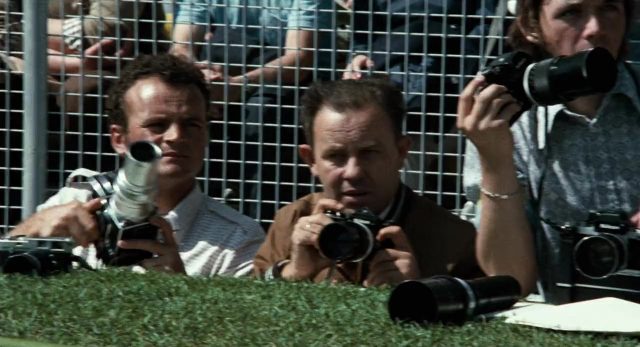Monday Movie: Visions of Eight, by David Bax

When 1973’s Visions of Eight was conceived and commissioned—even while some of it was being produced—no one could have predicted what the 1972 Munich Olympics would ultimately be best remembered for. Thus, it’s equally understandable and jarring that the terrorist attacks are barely given a mention. With the benefit of distance, though, it provides a reminder of what most of those involved were thinking about during the games. Namely, the games.
Visions of Eight is a documentary anthology, in which eight different directors from eight different countries produce eight short films about the 1972 Olympics. Most of them, like Sweden’s Mai Zetterling, focus on one sport (in her case, weightlifting). Others pick an idea that spans multiple events; in one of the more fascinating segments, France’s Claude Lelouch trains his camera on those who have just lost their competitions.
Two entries stand out above the rest, though, like gold medal winners on the highest pedestal. Miloš Forman’s section claims to be about the decathlon but he spends most of his brief allotted time focusing on the pageantry and ritual of the scorekeepers, judges and other people scurrying about. Given Forman’s impishness, it’s the only chapter that’s overtly comedic, casting aside the feats of athleticism in favor of mocking the pomp and circumstance of men in matching sport coats solemnly carrying shots. The other highlight takes the exact opposite approach. Arthur Penn’s beautiful, slow motion depiction of pole vaulters makes an argument for the usefulness of forgetting about the horrors of the world for a moment to appreciate the splendor of bodies in motion.





























